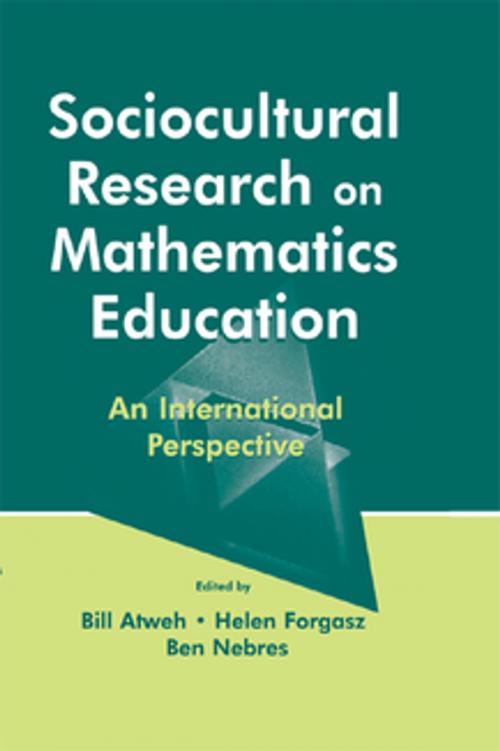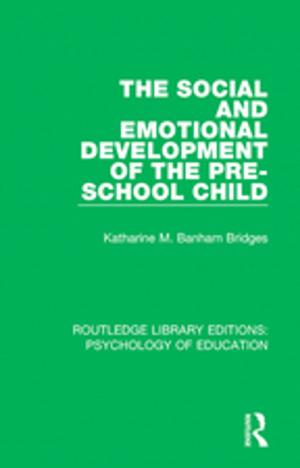Sociocultural Research on Mathematics Education
An International Perspective
Nonfiction, Reference & Language, Education & Teaching, Teaching, Teaching Methods| Author: | ISBN: | 9781135653118 | |
| Publisher: | Taylor and Francis | Publication: | March 7, 2013 |
| Imprint: | Routledge | Language: | English |
| Author: | |
| ISBN: | 9781135653118 |
| Publisher: | Taylor and Francis |
| Publication: | March 7, 2013 |
| Imprint: | Routledge |
| Language: | English |
This volume--the first to bring together research on sociocultural aspects of mathematics education--presents contemporary and international perspectives on social justice and equity issues that impact mathematics education. In particular, it highlights the importance of three interacting and powerful factors--gender, social, and cultural dimensions. Sociocultural Research on Mathematics Education: An International Perspective is distinguished in several ways:
* It is research based. Chapters report on significant research projects; present a comprehensive and critical summary of the research findings; and offer a critical discussion of research methods and theoretical perspectives undertaken in the area.
* It is future oriented, presenting recommendations for practice and policy and identifying areas for further research.
* It deals with all aspects of formal and informal mathematics education and applications and all levels of formal schooling.
As the context of mathematics education rapidly changes-- with an increased demand for mathematically literate citizenship; an increased awareness of issues of equity, inclusivity, and accountability; and increased efforts for globalization of curriculum development and research-- questions are being raised more than ever before about the problems of teaching and learning mathematics from a non-cognitive science perspective. This book contributes significantly to addressing such issues and answering such questions. It is especially relevant for researchers, graduate students, and policymakers in the field of mathematics education.
This volume--the first to bring together research on sociocultural aspects of mathematics education--presents contemporary and international perspectives on social justice and equity issues that impact mathematics education. In particular, it highlights the importance of three interacting and powerful factors--gender, social, and cultural dimensions. Sociocultural Research on Mathematics Education: An International Perspective is distinguished in several ways:
* It is research based. Chapters report on significant research projects; present a comprehensive and critical summary of the research findings; and offer a critical discussion of research methods and theoretical perspectives undertaken in the area.
* It is future oriented, presenting recommendations for practice and policy and identifying areas for further research.
* It deals with all aspects of formal and informal mathematics education and applications and all levels of formal schooling.
As the context of mathematics education rapidly changes-- with an increased demand for mathematically literate citizenship; an increased awareness of issues of equity, inclusivity, and accountability; and increased efforts for globalization of curriculum development and research-- questions are being raised more than ever before about the problems of teaching and learning mathematics from a non-cognitive science perspective. This book contributes significantly to addressing such issues and answering such questions. It is especially relevant for researchers, graduate students, and policymakers in the field of mathematics education.















